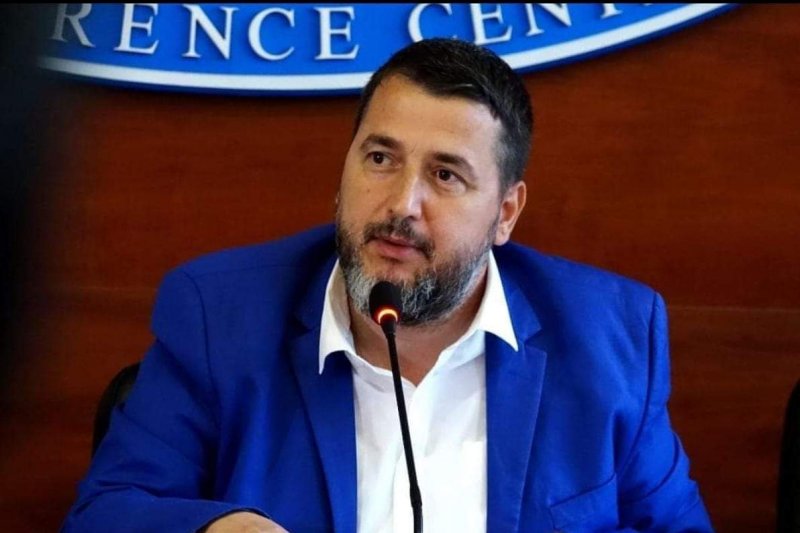Census, Faith and Nation
Twelve years after the last process, Albania is undergoing a new Census these weeks, i.e. an updated statistical survey, which will provide a detailed description of all economic, social and life aspects in Albania.
Theoratically, the Census data intends to help the state authorities design and implement policies on a more realistic basis and on more concrete needs of Albanian citizens in the fields of health, education, employment, infrastructure, etc.
But just like in 2011, the ethnic and religious registration issues are causing the biggest public debate. As a citizen of this country, I am definitely interested in a fair overview of the multi-ethnic landscape of Albania.
However, my greatest sensitivity as a theologian, practicing believer, but also as a member of civil society, which is every day engaged in the promotion of freedom and human and spiritual rights of man, coexistence and inter-religious harmony, has to do with free and fair registration of the religious affiliation of Albanian citizens.
Our country has had an admirable tradition of freedom to exercise religious belief, but also to openly express religious affiliation. This is what, among other things, the well-known English anthropologist Edith Durham wrote about Tirana in 1909 in her book "Brenga e Ballkanit":
"The city had 35 mosques. Moreover, all the inhabitants were devout believers. They used to live in harmony with the few Christian believers. I apologize of not having the possibility to stay more than 3 days in this earthly Paradise!".
In my opinion, modest religious faith and the nation in the Albanian reality have always gone hand in hand. This is the reason why, it is worth remembering the first government
of independent Albania, where the "Father of the Nation" Ismail Qemali, decided in
the post of deputy prime minister, Catholic priest Dom Nikollë Kaçorri.
Meanwhile, a few months later, Hafiz Vehbi Dibra was elected the first speaker of the parliament. The people of Elbasan, as permanent promoters of national and religious values, were the first to declare independence on November 25, 1912. This is what they declared, among other things: "All our nation, Muslims and Christians, all together have accepted Independence of Albania...".
And from the first signatories of the Act of Independence in Elbasan were Haxhi Hafiz Sulejman Kungulli, Deputy Metropolitan Pope Dhimitër Dhimitraku, Aqif Pa?ë Biçakçiu, Shefqet bey Vërlaci, Abdullah bey Tirana, Mayor Alush Saraçi, Sheikh Mahmut Guma, Sheikh Xhafer Pasmaqija, Bishop Beniamin Deliana, Serafin Jorgaqi, Beniamin Nosi, TaqBuda, Imam Hussein Efendi Dorazi, etc.
Therefore, in respect of this excellent tradition, protected with a high spirit of patriotism and fraternal solidarity, I call on every citizen
to declare full will and respect the freedom of religious affiliation.
This is important to respect the legacy of the ancestors, and raise the awareness that this was also the will of the Founding Fathers of the Albanian state. But above all, in respect of their dignity and personal pride. Unlike the other questions, the one about religious belief is not mandatory, it is optional.
At first sight, this should guarantee a realistic picture of religious affiliation in our country. In reality, the process is affected and why not directly harmed by a great pressure that is being exerted these days in the media and by the comments with a radical spirit that are being observed on social networks.
The campaign is based on the former call of the patriot Pashko Vasa "Albanian's religion is Albanianism!", which was made in a certain historical dispute when the country was still divided and when a rally around the idea of ??independence was required, and must be understood and interpreted exactly on those contours.
Unfortunately, that statement was exploited and misused massively by the communist dictatorship, to justify the declaration of official atheism in 1967. With that
unprecedented act in history, the communist system unjustly eradicated all the values ??and contribution of religions in Albania from the state-forming concept of the country.
Today, some people with a deficient cultural formation, or individuals who are carriers of mentalities inherited from the communist system, are trying to do exactly the same thing. They are using the same slogans to intimidate ordinary citizens to freely express their religious beliefs.
And come to think of it, this is happening in 2023, a time of incredible technological developments and Artificial Intelligence, which is supposed to open and not close people's minds.
I note with concern that the pressure is clearly more focused on Muslim believers. They are being told that they are the cause of backwardness
of Albania or its non-acceptance in Europe.
Such openly discriminatory, manipulative and sectarian approaches tend to lynch this great religious community, which is in fact a national asset of the entire Albanian people.
However, these individuals forget and despise the role of this community
in the shaping of the identity and the basic structure of the Albanian society and the Albanian nation, i.e. its basic foundations, where one of them is the multi-religious wealth of this nation.
I am sure that this great asset will continue to shape a small peace-loving nation in Europe. Are precisely these values, which we must convey to others, people who will respect us for who we really are.
Muslim believers and Albanian citizens with a Muslim tradition, but also with other religious traditions, must have the opportunity and the right space to understand that the roots of this heritage are important for the very essence, wholeness and interior of Albania, but also all Albanians wherever they live in the Western Balkans.













